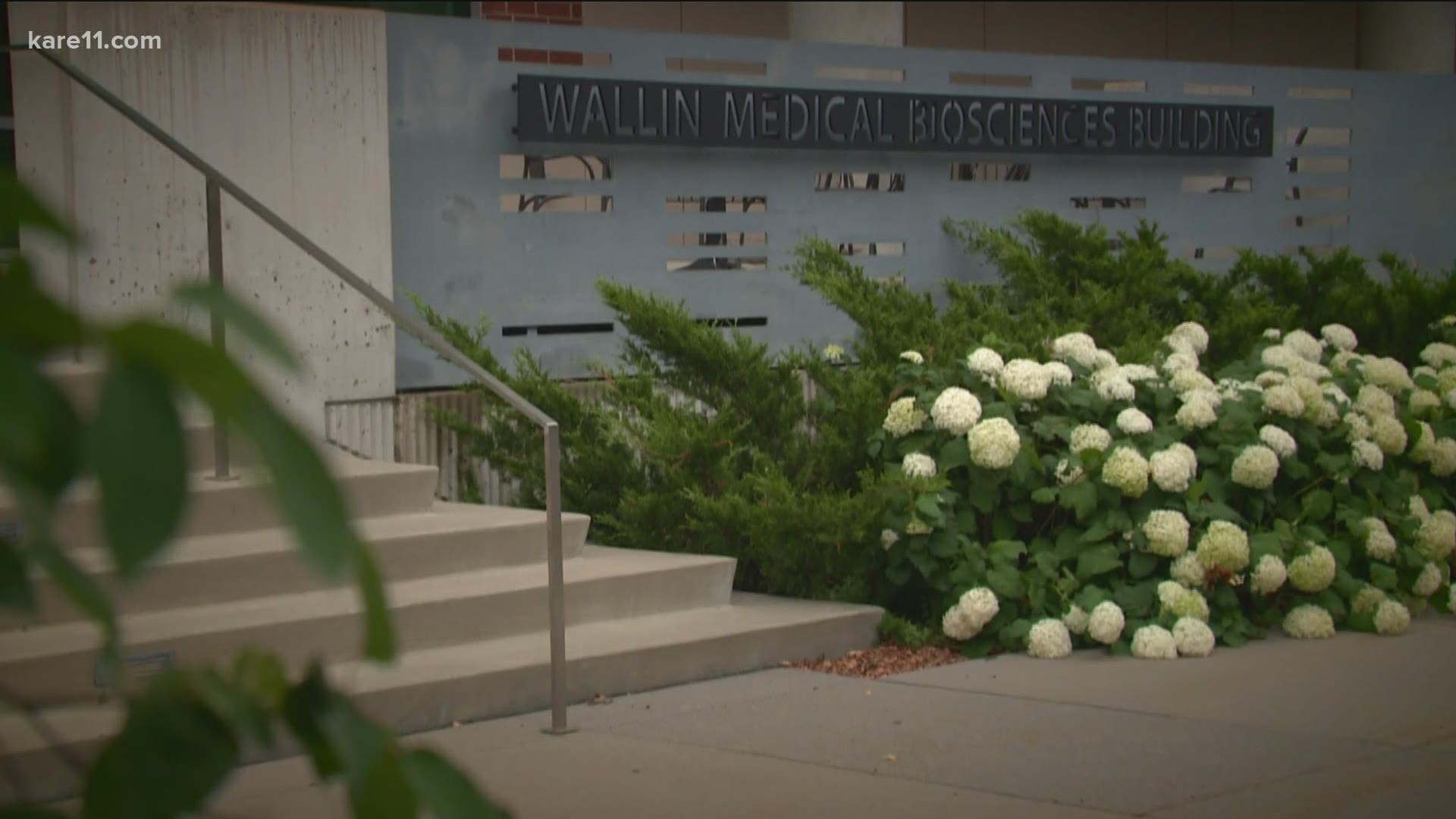MINNEAPOLIS, Minnesota — So many questions exist related to antibodies and immunity to COVID-19. Now the University of Minnesota Medical School is part of a new national network, dedicated to seeking those answers.
The University of Minnesota Medical School's Department of Laboratory Medicine and Pathology has been selected as one of four Capacity Building Centers in the country, part of the Serological Sciences Network (SeroNet).
SeroNet is one of the nation's largest coordinated efforts to study the immune response to COVID-19, led by the National Cancer Institute. The initiative also aims to quickly increase the nation's antibody testing capacity.
"We will be part of a larger network of institutions that are going to be studying serology and antibody responses to COVID-19 over the next five years," said Dr. Amy Karger, director of COVID-19 serology testing at the U's Advanced Research and Diagnostics Laboratory and associate professor at the UMN Medical School.
Dr. Karger — the principal investigator for the initiative — said there are a couple reasons why their application for SeroNet was so strong.
"We did develop our own antibody method at the university. I think that put us in a very strong position because we showed that we could be innovative testing and come up with our own technology. Our method is semi-quantitative so we can actually tell the level of antibody response that a person has whereas most antibody tests out there only give a yes, no answer. You're either positive or negative. And that's one thing they're wanting to better understand is the level of antibody response. So our method allows that to be determined," Dr. Karger said.
The state of Minnesota also invested in enhancing testing capacity early on in the pandemic which Dr. Karger said put them in a good position for this opportunity.
While researchers across the world have been making strides, there's still much to uncover through antibody research.
"It's not still clear why some people don't develop antibody responses and why some people's antibody responses are stronger than others. It's also not completely clear how long antibody responses are going to last. So that's something we're going to want to follow over time as the pandemic evolves," Dr. Karger said. "Also part of this consortium is going to be understanding the interplay between antibody responses and T cell responses. There's been a lot of press about the importance of T cells and so there are investigators that are part of this consortium that are going to be looking at the cellular immunity component and try to understand how those work together to fight off the virus."
With a five-year, $6.7 million grant, researchers at the U will help develop, validate, improve and implement serological testing. The U will be collaborating with more than 25 institutions on the initiative.
"I think another key thing in terms of antibody research is in the future, but hopefully will be soon, is understanding antibody responses to the vaccine. That's going to be a really critical piece to understand as vaccines get deployed and this network of institutions is going to work to study that as well once vaccines are utilized on the general public," Dr. Karger said.
Part of their work will include comparing different methods to determine which antibody tests are the cream of the crop. That will require volunteers in the community — both COVID negative and positive — to donate blood serum samples for the study. More information on how to get involved will be provided in the next few weeks.

